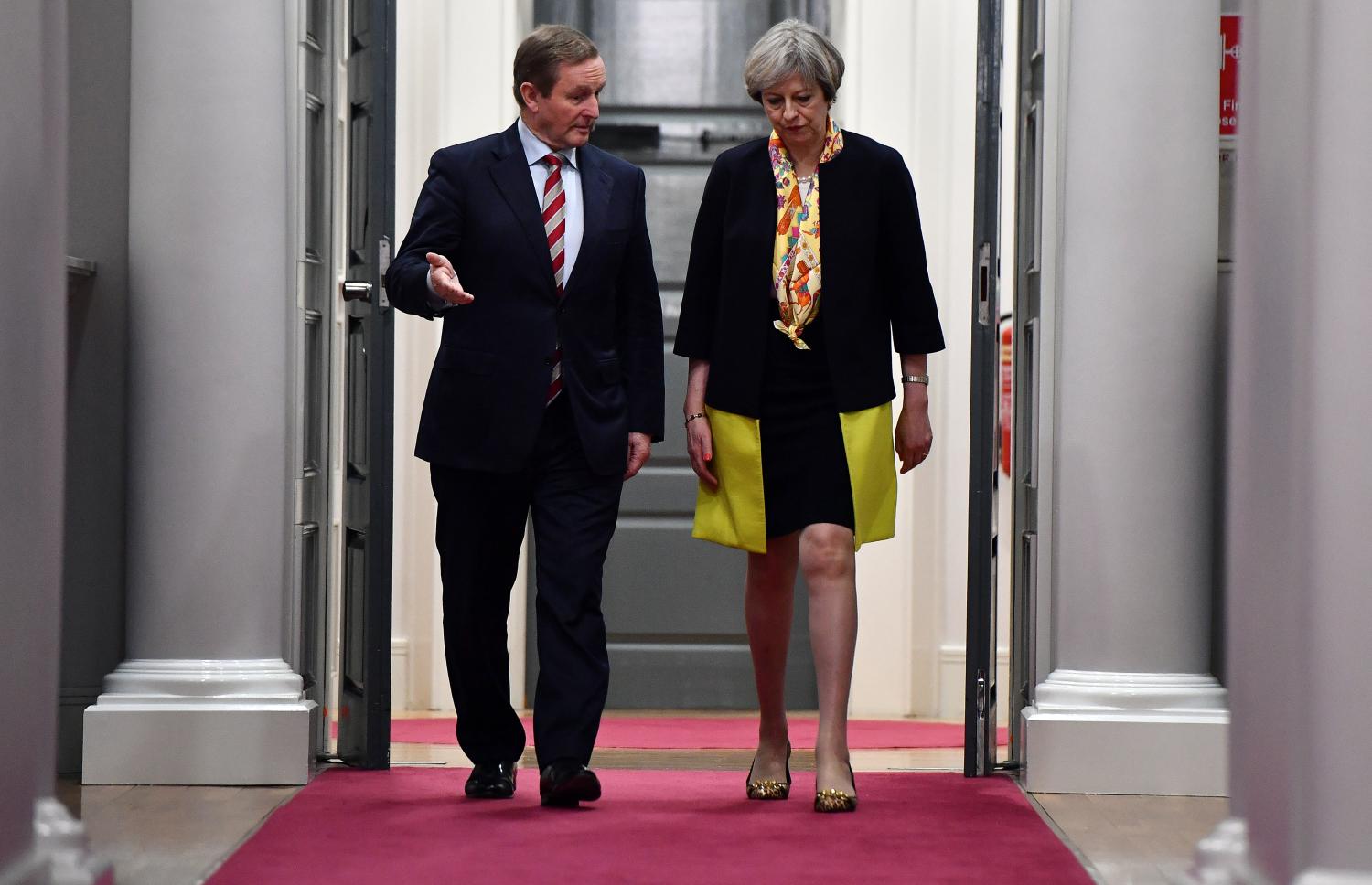I am a believer in the EU and I think what we need to do is to rediscover its great moments...What I think is rather sad…was the degree of fear that was in the discourse…It seemed to crowd out… all the things that the people of Europe can achieve together that go far beyond the elimination of war.
Michael D. Higgins, President of Ireland, 28 June 2016
Perhaps no country has a greater stake in how UK Prime Minister Theresa May pursues her vision for Brexit than Ireland. While being careful not to be seen or portrayed as meddling in UK politics during the Brexit referendum campaign, the Irish government worked both behind the scenes and publicly to support the Remain cause and to encourage eligible Irish to vote in the referendum.
The Irish government was surprised and disappointed at the Brexit referendum outcome. UK Prime Minister’s Theresa May’s 17 January speech, in which she outlined her negotiating priorities for Brexit, did little to allay Irish concerns. While May committed to maintain the Common Travel Area between Northern Ireland and the republic, the speech failed to provide clarity on what the exit from the customs union and single market would mean for Ireland, particularly potential implications for North-South relations and the 1988 Good Friday Northern Ireland Peace Agreement.
The Irish government’s response to May’s speech was measured. The Taoiseach’s (Prime Minister’s) office said it provided 'greater clarity on the proposed approach of the British Government' and that May had ‘made clear that she [wished] to secure the closest possible future economic relationship for Britain with the EU, a goal that Ireland shares.' It emphasised that Ireland’s priorities remained its 'economic and trading arrangements, the Northern Ireland Peace Process including border issues, the common travel area, and the future of the European Union'.
Micheál Martin, leader of the opposition party Fianna Fáil, expressed concern that there was no mention of the special status of Northern Ireland and that the focus was on strengthening the British union, saying 'there's not a lot in it, in terms of the Irish perspective'.
Sinn Féin leader Gerry Adams drew attention to the fact that Northern Ireland had voted Remain. He argued that May’s intention to bring an end to the jurisdiction of the European Court, along with her commitment to withdraw from the European Convention on Human Rights, would have ‘profound implications for the Good Friday Agreement’.
The role of the European Court and Convention are fundamental to the human rights elements of the Good Friday Agreement…The imposition of Brexit, against the will of the people, will impact on our economy and on our community….Sinn Féin believes that the only realistic solution to this issue is for the North to have a special designated status within the EU.
On 30 January, Theresa May was in Dublin for talks with Irish Prime Minister Enda Kenny to reassure Ireland about Brexit and of her commitment to the special relationship between the UK and Ireland.
The visit is unlikely to have allayed Irish concerns. In addition to uncertainties about the border and the Northern Ireland peace process, Brexit is seen as having a largely negative impact from a trade and economic perspective.
The UK accounts for approximately 14% of Ireland’s exports of goods and approximately 26% of Ireland’s imports. As regards services trade, the UK accounts for 18% of exports and 10% of imports. Ireland is highly exposed in terms of trade and a study by the Irish Institute of International and European Affairs identified that mitigating damage to the €1.2billion weekly bilateral trade relationship would be a key challenge arising from Brexit.
Moreover, according to Ireland’s Economic and Social Research Institute, the level of Irish output will potentially be between 2.3% and 3.8% lower as a result of Brexit than it would otherwise have been over the longer term.
Irish business has also been vocal in expressing its concerns about Brexit. A Deloitte survey of Irish CFOs found that a potential increase in non-tariff barriers to trade was a key concern, followed by reduced workforce mobility and higher tariffs.
In its October 2017 budget, the Irish government acknowledged the challenges Brexit posed and announced various tax and other measures to mitigate its impact. The government has also pointed to potential opportunities for Ireland arising from Brexit, especially if foreign companies with interests in the EU base themselves in Ireland. However, this has done little to mitigate concern about Brexit, and Fianna Fáil and the other opposition parties have repeatedly accused the government of not having a plan to deal with Brexit.
While Anglo-Irish relations are at an historical strong point, Brexit remains a testing issue for Enda Kenny’s Fine Gael minority government domestically and it is difficult to foresee an early resolution of Ireland’s concerns in the Brexit negotiations.

